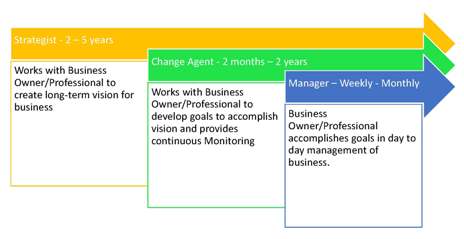Last week I wrote about Leadership and Self Reliance with the idea that this week I am following up with how this works with a particular professional business. First let me explain a little about self-reliance. The idea is for people to become self-reliant or to rely on themselves, their own powers, resources, etc. This does not mean that a person does not use the services of other people, but it means that they have prepared their lives in such a way that those services add value to what they are doing on their own. The concept is the opposite of the entitlement mentality wherein people believe that they deserve something without any effort on their part.
It should be part of everyone’s vision to become self-reliant in this world. I love my children, and I am thrilled at their successes, and I love helping them succeed, I am most proud when they accomplish their goals on their own. Each one is a great person in their own right, some are more self-reliant that others (they are all at different and stages in life where we would expect this). The vision is to help them become self-reliant in their own family unit. That does not mean they won’t need help now and then, it means they are figuring things out for themselves and then seeking help with their own plan.
As a Personal CFO, using the composite leadership principles, over the years I have worked with clients who are chiropractic physicians, (while this works with all businesses in this article I am going to reference chiropractors). I like working with them because, as part of their medical training, they are taught that the body has incredible healing powers on its own, it needs a little adjusting now and then to keep it going. They also realize that other complications arise and a person may need medical care beyond their specialty. The chiropractors I have had the pleasure of working with have a sincere desire to make people’s lives better. They are, for the most part, self-reliant.
In my work as a strategist, helping chiropractors fulfill their vision, often starts with defining what their long-term vision is, (the direction they want to go), complete with all their ideas, which generally goes beyond ten years or more. This may include building a self-sustaining practice that helps patients improve their health. A practice with all the right policies and procedures in place, so if a team member is missing for a few days or out on maternity leave, others know how to fill in. Implementation and monitoring can provide a more profitable stress free practice. After all only when a business is profitable can it continue to provide the services necessary to the public. The vision also includes the most important benefit of all, a quality family life with time for the spouse and children. Remember that ALL businesses are family businesses.
What makes the vision, come about is setting and accomplishing specific measurable goals. These goals are more mid-term in nature answering the question: what specific things can we do to accomplish the vision? The change agent is active in this role, defining these goals and designing measurable ways to accomplish them. Implementing certain strategies to bring about greater success in the practice. In the case with a chiropractor, it may involve additional marketing, to see more people at certain times of the day. Writing the policies that employees need to follow to make that patients receive the level of service and care they are seeking. Establishing an office budget to better manage the office’s financial resources. Designing strategies to minimize taxes. Risk management and how to protect against exposed risks. Many of these goals can be implemented in as little as a few months to a year.
As items are implemented in a manner of priority to the chiropractor, the practice begins to change in the practice and home life. Stresses are reduced as items on the “to-do list” are accomplished. The Manager (in this case the Chiropractor) sees the things that are necessary to accomplish day in and day out to accomplish the goals set. This direction provides a charted course that ultimately makes the practice easier to manage. Employees know what to do in their areas of responsibility as well as understand the responsibilities of others, thereby creating a cohesive team effort.
A challenge that has always occurred is the monitoring of what is happening. Through constant outside monitoring, small lapses are able to be caught and corrected. As financial issues arise they are dealt with right then. Providing counsel at that time is easier than trying to fix a problem months later. We can’t predict the future but we can be prepared for what may come. Monitoring the practice allows the chiropractor to focus more on patient care, which helps the practice become more profitable.






